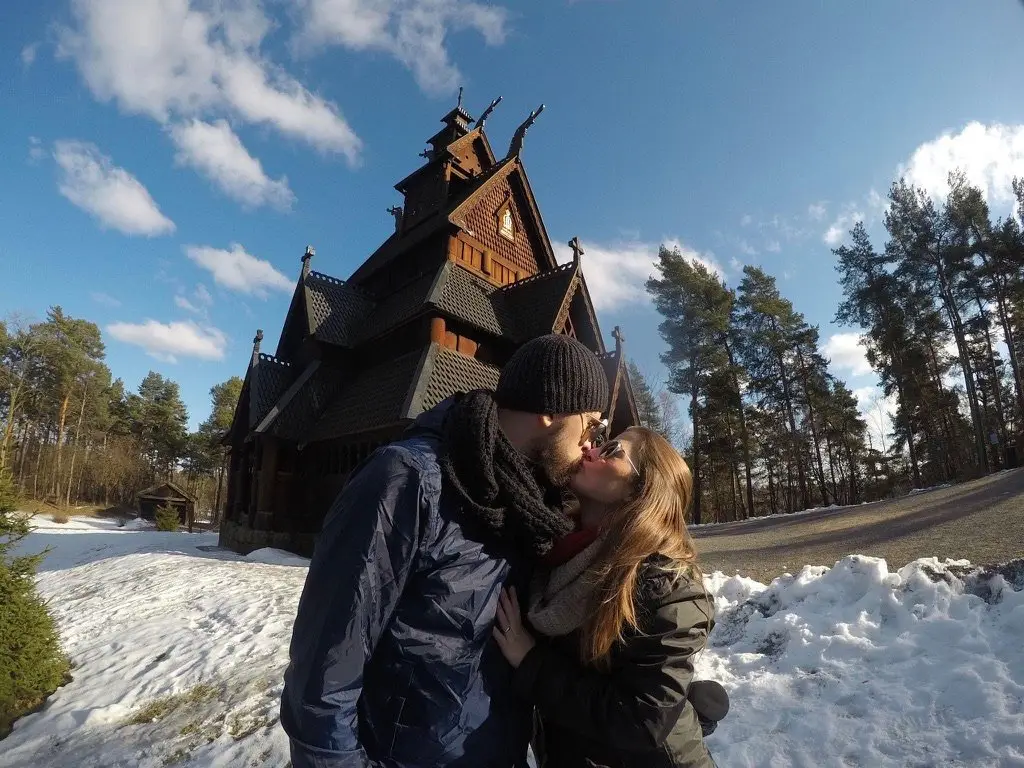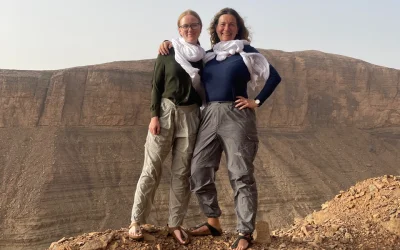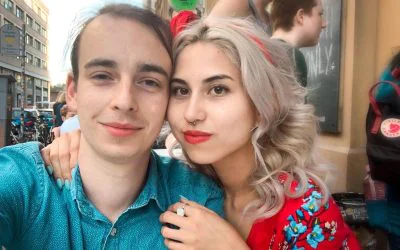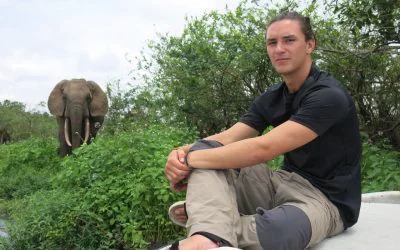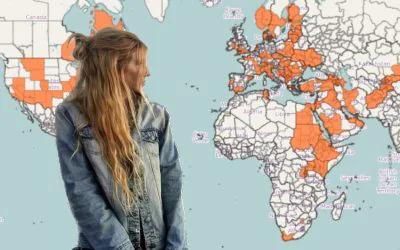We are thrilled to announce a new rubric for our interviews – The ‘not alone’ travellers and excited to open up with this inspiring young couple from Brazil. Lídia and Rafael Diedrich travelled together all the way through their twenties and now they are parents to a young girl who joins her parents on their feat to finish up the UN 193 goal. Join us as we ask them about their previous and future travel plans.

Until some point, Lídia and Rafael had a mutual profile on NomadMania, but then they decided to split it up. Here is Lídia’s profile link, nothing less impressive than Rafael’s.
Dear Lídia and Rafael, how are you these days? How much are you travelling and where are you now?
Many, many trips, after a long period travelling only close to our base in Brazil, in 2022 we went back on the road, and we did this year: Santa Lucia, Dominica, St. Vincent and the Grenadines, Belize, Barbados, United States and Mexico. (This interview was done in March 2022, so this data surely changed by now.
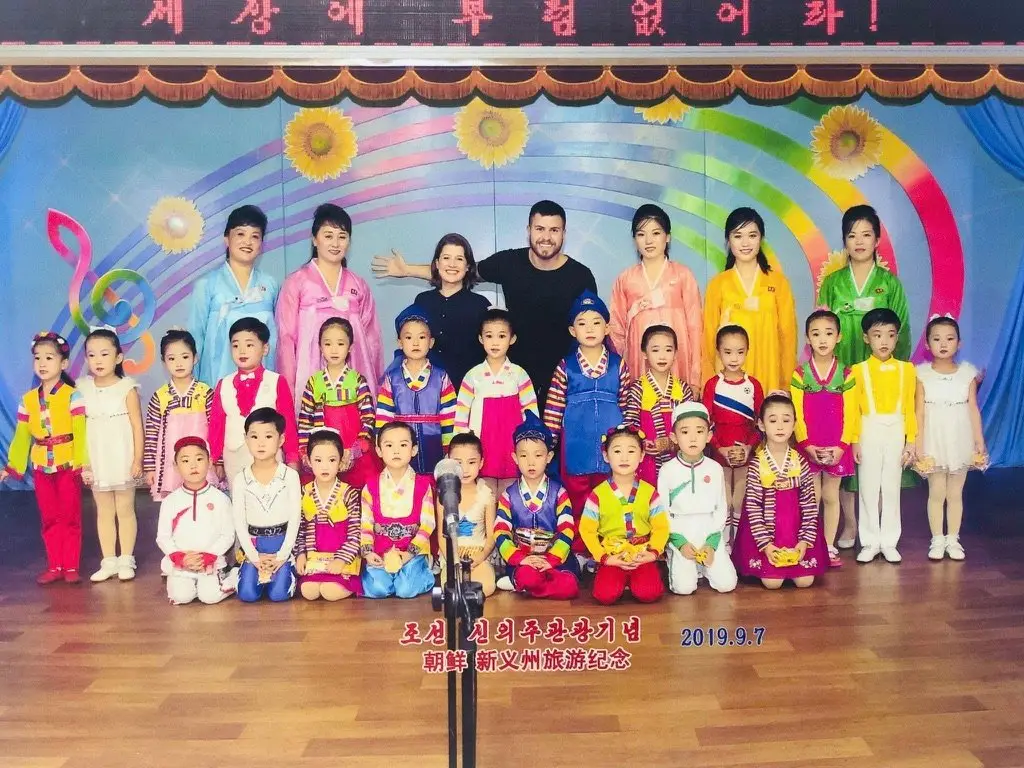
Seems like you are only 3 countries away from your goal of reaching 196 countries. Which ones are you missing now? How many of UN 193 countries did you visit by this moment?
In fact, there are only 4 countries out of the 193 left to complete the mission. 4 of these are from the UN list:
Malta, Cyprus, Moldova and Algeria.
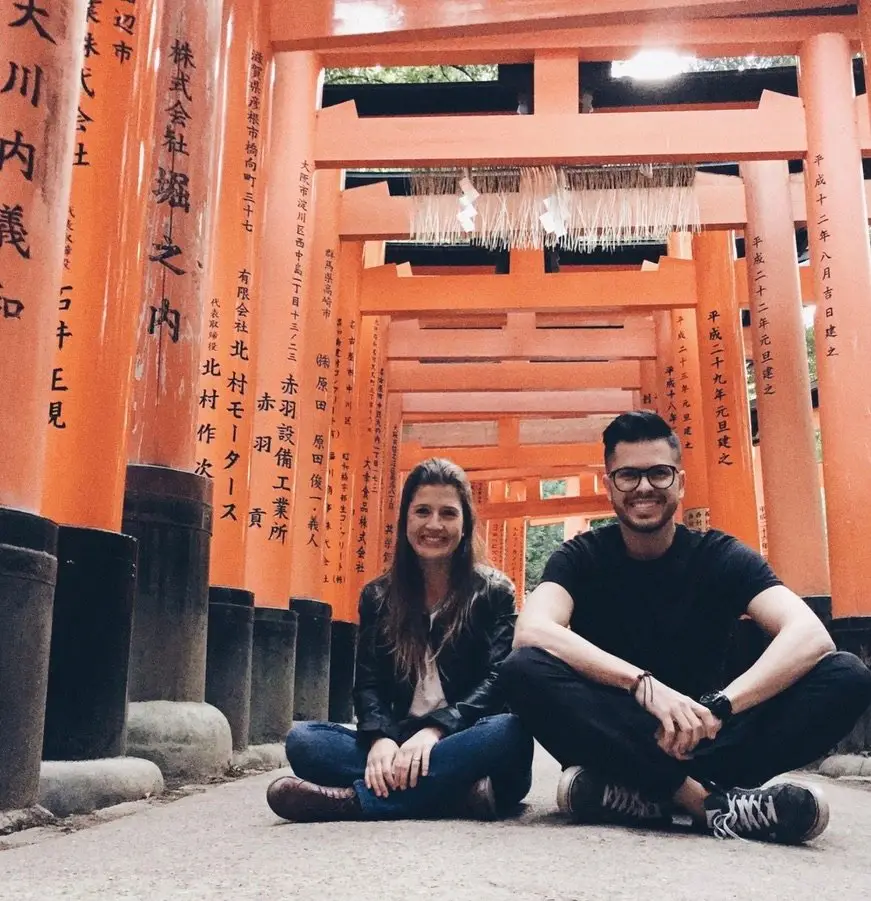
Do you have a specific deadline to visit the remaining countries and do you think this will be possible to achieve in the near future? The world suddenly became even more complicated seemingly, though none of us expected that after the Pandemic…
All tickets to complete the last 8 countries in the world were purchased in 2019 for us to travel from April 2020 to July 2020, but everything was cancelled, of course.
We plan to finish this year by September 2022.
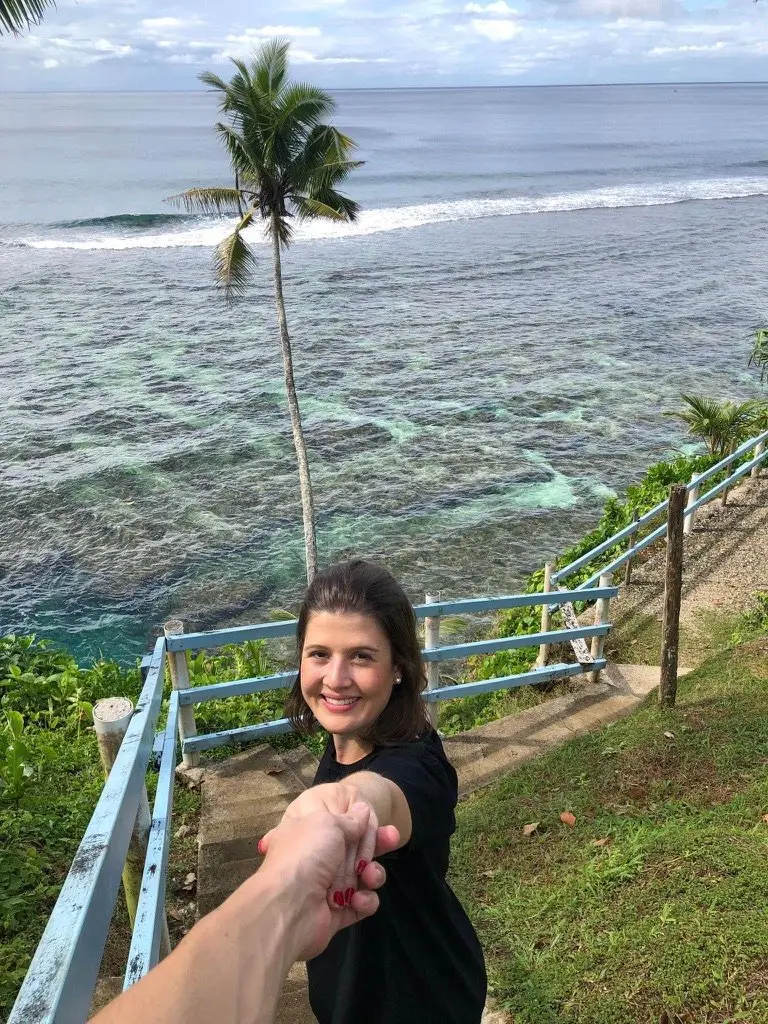
You have been travelling as a couple most of your time. How did this happen and how did it influence your relationship?
We met at a summer camp for children and teenagers when we were 13 and 12 years old, we got married early at 21 and 20, and since then we started travelling the world.
We realised that travelling generated resilience in us, and this strengthened the way we see the world and each other. Getting to know new cultures made us collect skills and care for each other.
Travelling is transformative. And yes, we know all the countries together.

Additionally, you are both so young! How did you do it in such a short time? What is your secret, if you consider to have any?
It’s 11 years of travelling. We are not rich, we were not born into rich families and we started travelling close to when we got married.
We learned to travel with strategies, partnering with companies like Canon, various banks, clothing brands, shoes and even yoghurts hahaha.
Almost all the countries we visited were with partnerships.
When we started we didn’t aim to visit so many countries, we were just discovering the world, but when we were getting close to 100 countries, a company said they would help us pay for the rest of the countries and so we went.
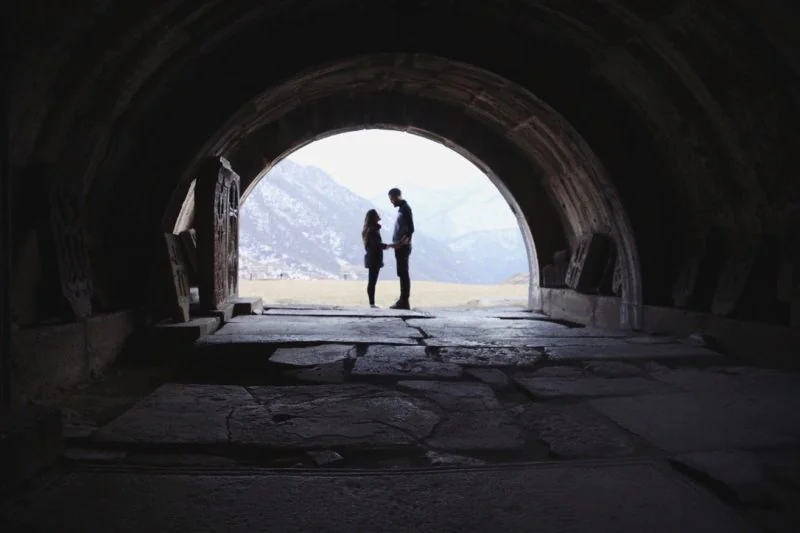
Recently you made the decision to become parents and to make your travelling duo now a trio. How is your daughter reacting to her parent’s lifestyle and have you been able to travel with her as much as you’d like?
Our one-year-old daughter has been to nine countries and she loved it. The rhythm changes a little because the baby has a routine for breastfeeding, feeding, and sleeping.
Lídia is an obstetric nurse specialising in breastfeeding and Rafael is a neuroscientist specialising in child care, so we are doing well.
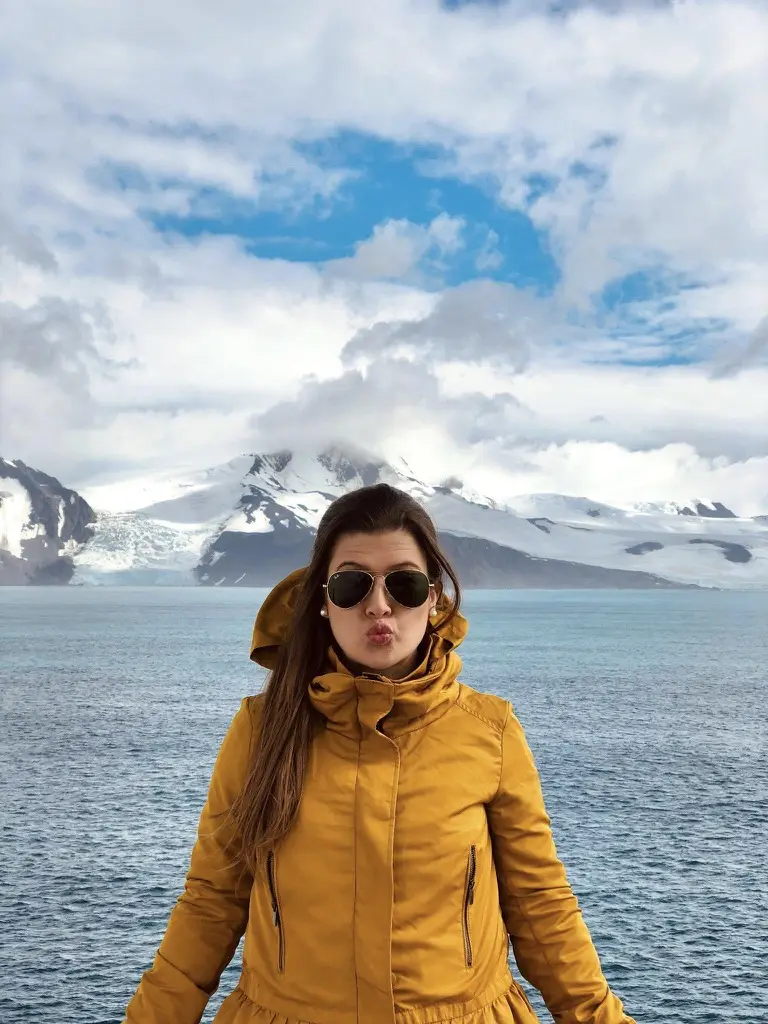
What are your biggest travel interests? Where do you go before you go everywhere else?
We love meeting local people, local cuisine, and the secret destinations of each place, we like to know where the locals go.
Lídia loves the beach and the heat, while Rafael loves snow and cold, so we are always mixing our trips for both of us to enjoy it a lot.
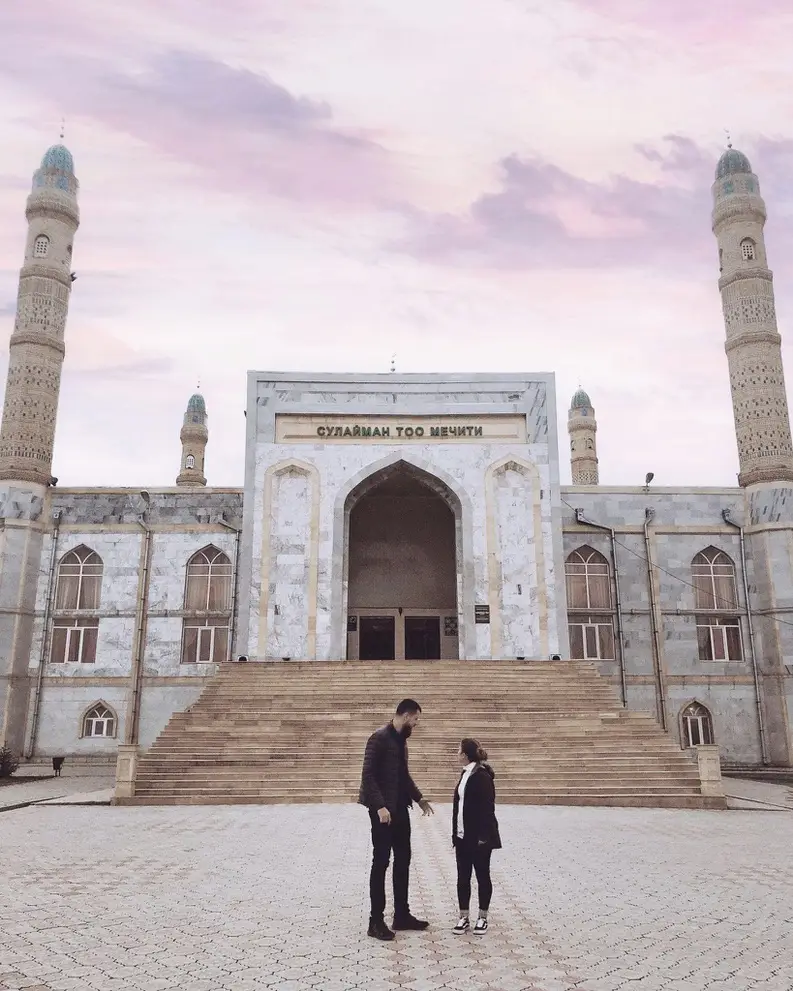
Travel comes with a set of surprises, no doubt. What are some of the most surprising stories that you remember from your travels?
Complicated surprises:
1. Imprisoned in Belarus;
2. We were not allowed to enter North Korea with a cell phone;
3. Escort in Libya;
4. Escort in the Central African Republic;
5. Isolated in the desert in Senegal at night (a broken car);
6. Bitten by a kangaroo in Papua New Guinea;
7. More than 30 hours without eating and drinking in Africa
8. Lídia reviewed in Israel with a bread knife in her backpack;
9. Intestinal infection in Thailand;
10. Abandoned at the Comoros airport;
11. Confused with traffickers in Australia
12. Hurricane in the Caribbean and typhoon in North Korea.
Good surprises:
1. Ice cave in Iceland;
2. Walking on Via Cruces in Jerusalem;
3. Selfie with quokkas in Australia;
4. Seeing many penguins in Antarctica;
5. Sunset in Santorini;
6. Kazakh food;
7. Old cars from Cuba;
8. Elephant sanctuary in Sri Lanka;
9. Moroccan sky;
10. Fernando de Noronha beach – Brazil;
11. Northern lights in Iceland;
12. Waitomo cave in New Zealand.
There are many other surprises, of course, these are just a few of them.
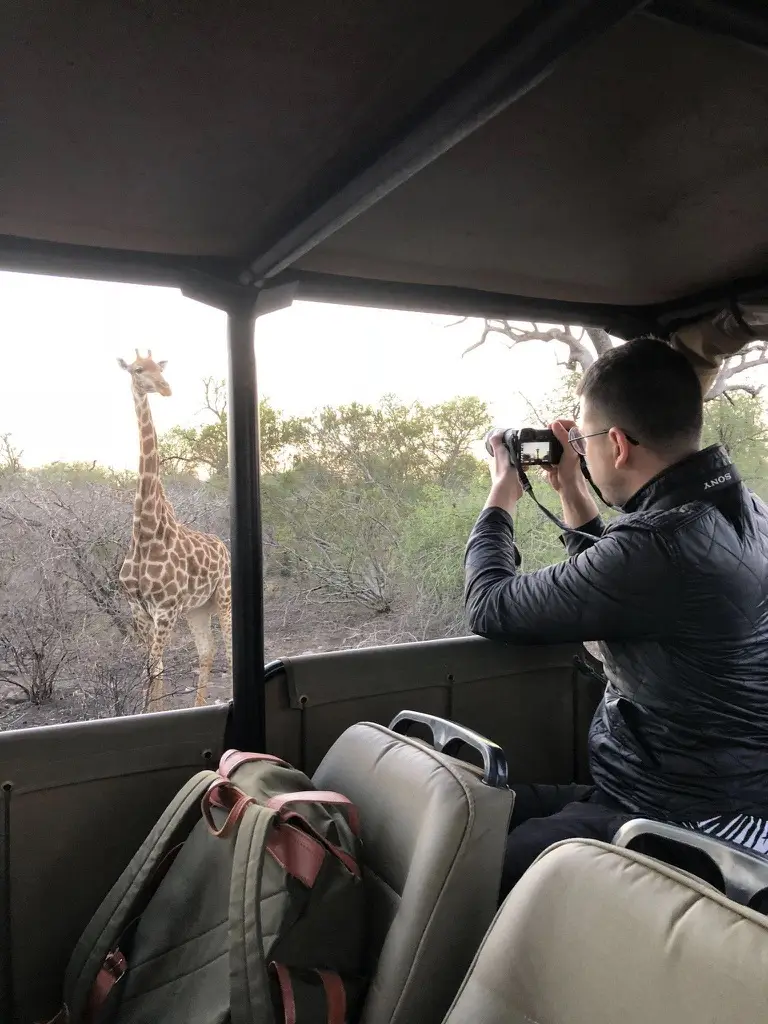
Given that you are travelling as a couple, how do your families react to this? By now they must’ve gotten used to this, but how was it in the beginning? Has anything changed?
The family always supported us, until we started going to countries with conflict. They were very worried about us, because some countries are going through very sad times, and they are hostile towards women or foreigners.
But after we passed them, everything became calmer.
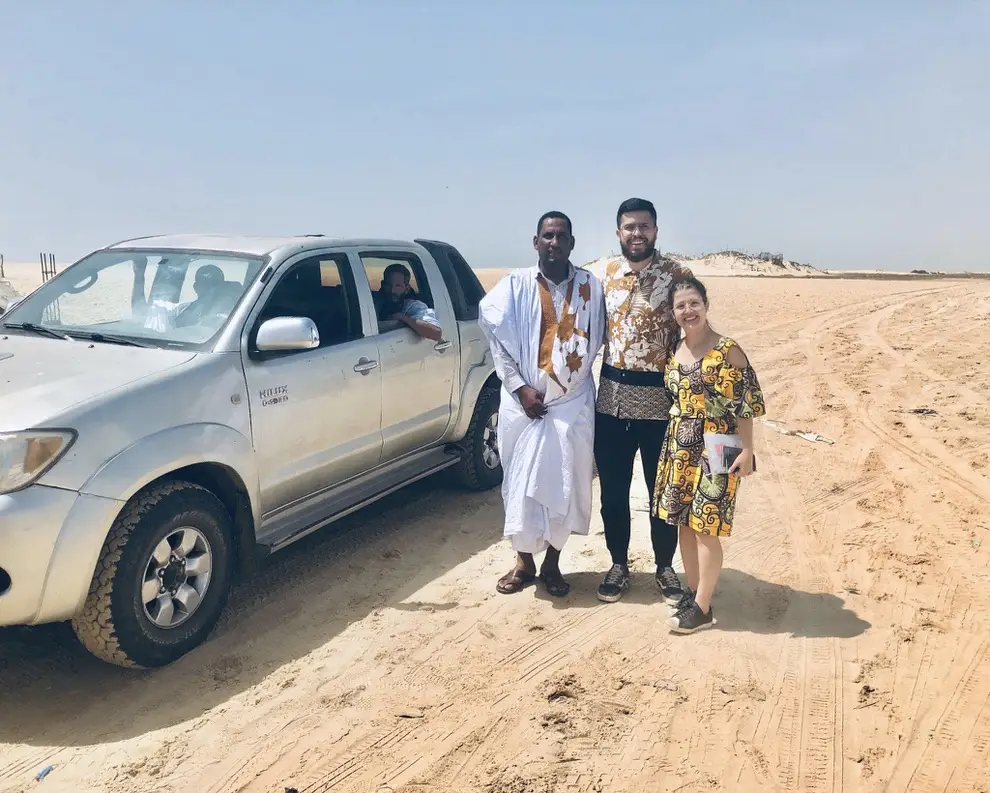
How did your general view of the world change with travelling?
The world is much smaller than we imagined to travel and much larger than our eyes can see.
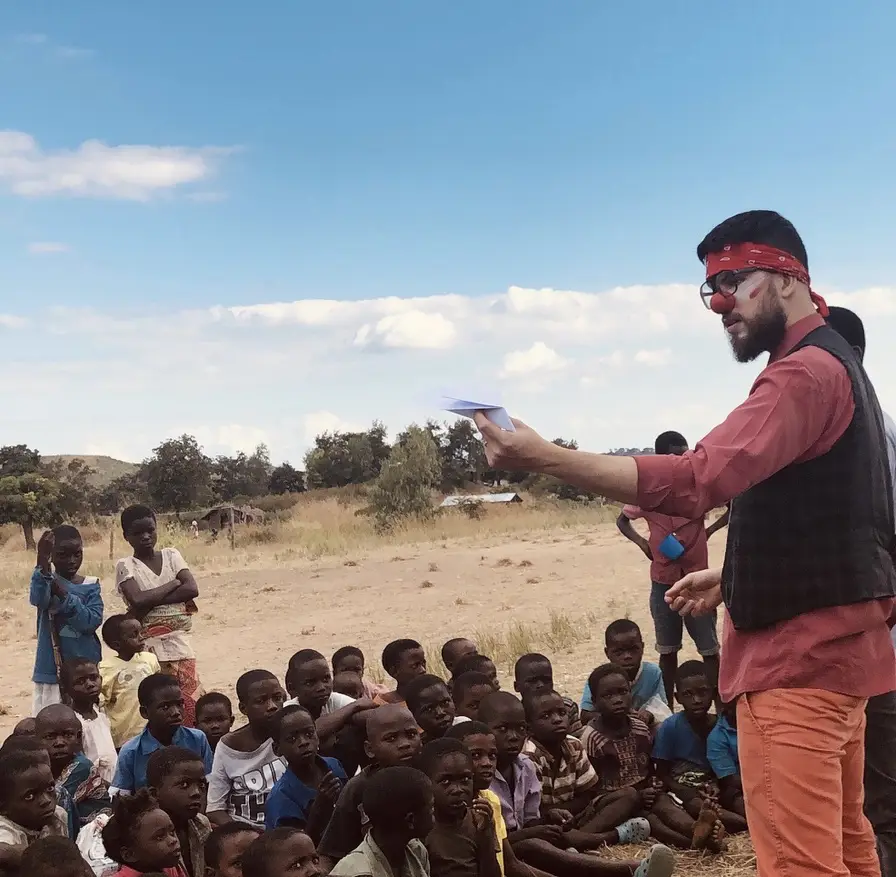
After finishing your goal to travel to all countries, you said your hope was to see even more of the world and to show the world to your daughter (and her future siblings). How do you hope to shape their world with travel? Would you recommend this to all young parents?
The price of prevention is much lower than that of re-education.
We want to educate our daughter’s eyes so that she grows up without racism, dualism, prejudice, and hope.
We know that travelling helps educate our eyes and our hearts.
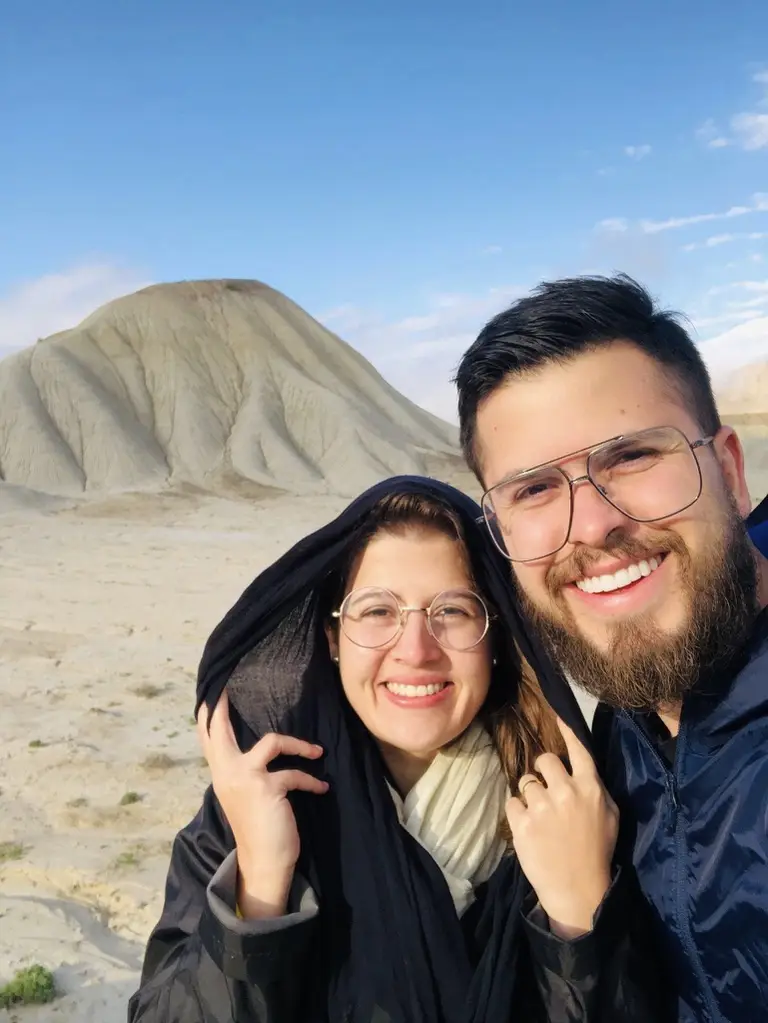
What can travel teach us about the world? Do you imagine our world would be different if more people saw more of it?
Every time we arrive in a new place, we close our eyes and ask – keep the comparative gaze away from us. We want contemplative eyes in this place. This is our meditation.
If you travel with a comparative eye, you measure places, people and cultures, but travel cannot be measured. Travel needs to be experienced.
If you understand that, you take it into your daily life, in relationships, in education, and in your worldview.
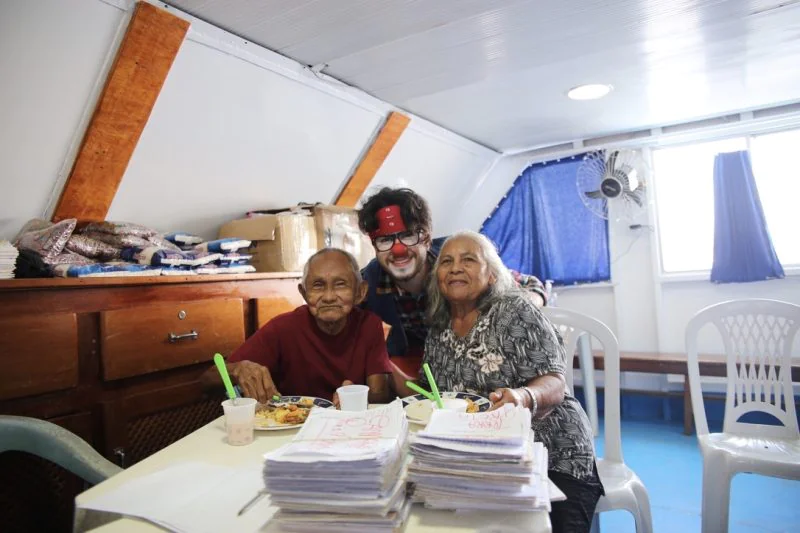
You are very successful on social media – on Instagram alone you have one million followers. How did you achieve that and did you start with having this as a goal in your mind?
We started early, for a Portuguese-speaking audience. And we offer tips on how people can travel more. Our Instagram is not an ego showcase, but a channel to help people travel more and more. That was the road to success, in our opinion.
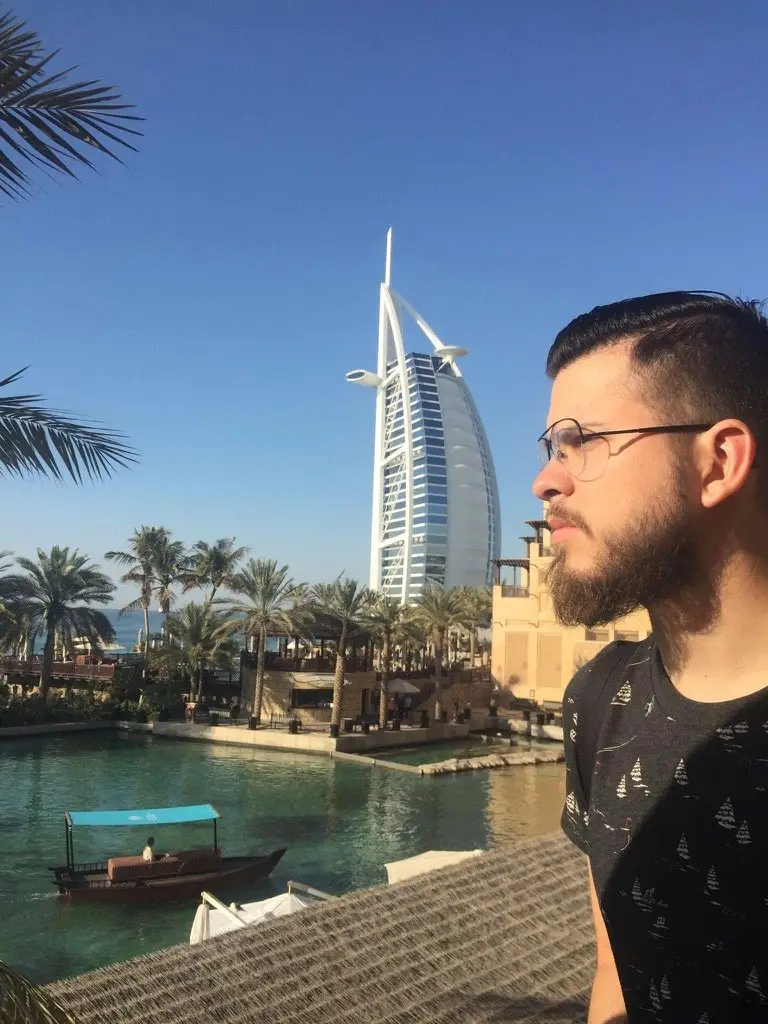
What would you recommend to fresh travellers who might want to replicate your story?
Get inspired but don’t copy, if you try to do the same thing it will go wrong. Travelling is not a cake formula, it’s a unique hike you’ll discover by doing. You can even copy how we buy tickets or stay in hotels, but don’t copy a story, create your story and how it will connect with the different peoples of this world
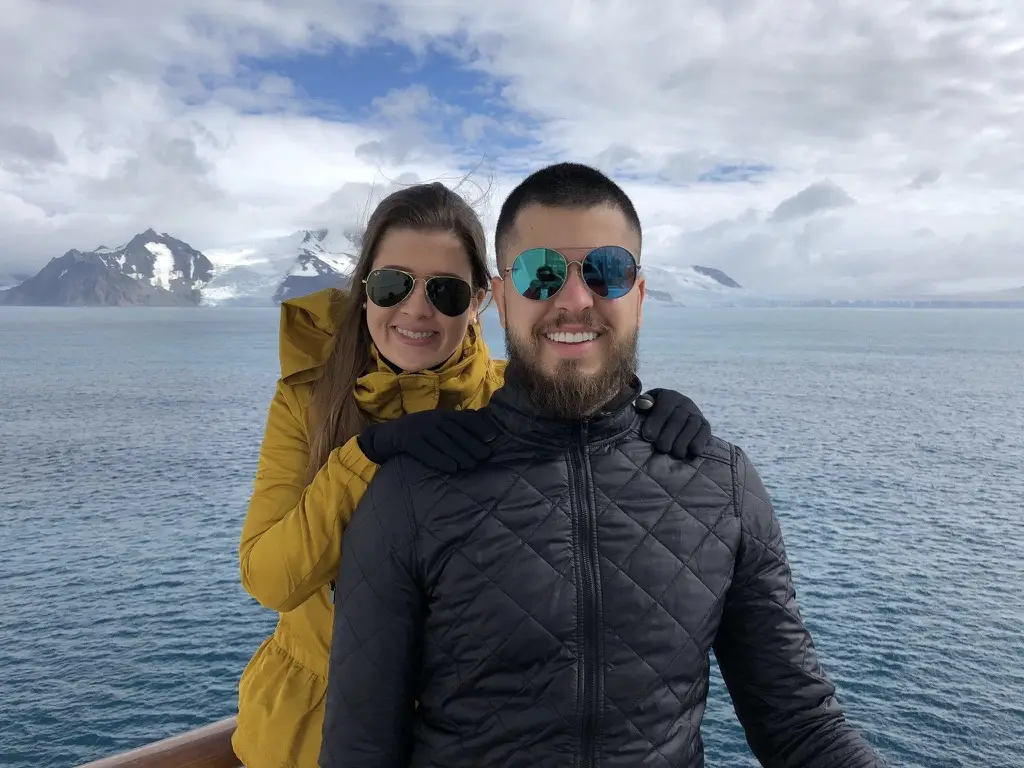
We have a signature question that we ask all of our guests: if you could invite 4 people from any era to dinner, who would your guests be and why?
Jesus, for his strong influence in the West. Confucius, for his influence in the East. The philosopher Ptaotepe was the first recorded African philosopher in history.
Finally, Ernest Henry Shackleton, an accomplished traveller for exploring Antarctica.
